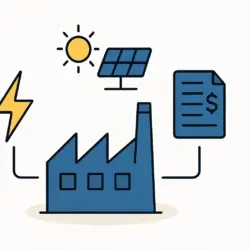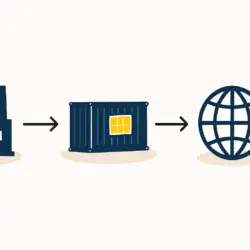CPF Thailand Leads with First ASC Feed Mill Certification for Sustainable Aquaculture
In a landmark achievement for Southeast Asia’s aquaculture industry, CPF Thailand’s Pranburi Feed Mill has become the first in the nation to attain the prestigious Aquaculture Stewardship Council (ASC) feed mill certification. This accomplishment underscores a deep-seated commitment to sustainability, environmental responsibility, and complete transparency throughout the aquaculture supply chain. Following this pioneering move, CPF’s Ban Bueng aquafeed mill has also secured the certification, further solidifying the company’s leadership in responsible feed production.
This certification is more than just an award; it represents a verifiable promise to consumers and partners that the feed produced meets the highest global standards for environmental and social responsibility. A key part of this commitment involves integrating renewable energy, particularly solar power, into the production process, aligning the mill’s operations with the core goals of the ASC standard.
Environmental Stewardship Through CPF ASC certification and Renewable Energy
A cornerstone of the ASC certification is the tangible reduction of a facility’s environmental impact. The Ban Bueng mill, for example, has made significant strides by transitioning to renewable energy sources, incorporating both biomass and solar power into its operations. This strategic shift is part of a comprehensive plan to minimize greenhouse gas emissions across the entire manufacturing process.
This move mirrors a broader national trend, as the Thailand solar market is expanding rapidly, supported by government initiatives. With a new Thailand solar rooftop law simplifying installations and the government’s decision to increase the solar power quota, industrial adoption of solar energy is becoming increasingly viable and essential for sustainable operations. This supportive ecosystem, which includes a growing pool of skilled solar labor in Thailand, enables companies like CPF to invest confidently in green technology.
A Holistic Approach to Sustainability and Supply Chain Excellence with CPF ASC certification
CPF’s commitment extends far beyond its factory walls. The company has established robust community and employee wellbeing programs, including local tree-planting activities, promoting pesticide-free household vegetable gardens, and forming knowledge-sharing partnerships with nearby schools.
The ASC Feed certification complements CPF’s existing credentials, including the Best Aquaculture Practices (BAP) 4-Star certification, which covers the entire shrimp supply chain from feed mills and hatcheries to farms and processing plants. This multi-layered approach ensures accountability at every step. Furthermore, the company demonstrates its dedication to responsible practices by sourcing raw materials for its feed, such as fishmeal, from internationally certified and legally compliant suppliers, all while upholding ethical labor practices.
Strategic Significance of CPF ASC certification in a Global Market
According to CPF leadership, achieving the ASC Feed certification is a pivotal move that elevates the standard for responsible feed production. It not only reinforces consumer trust but also strengthens Thailand’s competitive position in the global shrimp market. This success is a testament to the company’s integration of technology and innovation, from sourcing and the basics of manufacturing to farming and processing. It highlights a long-term vision that skillfully balances economic growth with environmental stewardship and social responsibility, positioning Thailand as a strategic hub for sustainable industries, including solar manufacturing in the EEC.
By championing such high standards, CPF is not just leading by example but is also paving the way for a more sustainable and transparent future for the entire aquaculture industry.
If you’re interested in understanding the complexities behind setting up sustainable manufacturing operations, from the necessary manufacturing machines to a full plant cost breakdown, explore our detailed resources. To deepen your knowledge even further, consider enrolling in our free e-course on solar panel manufacturing.



